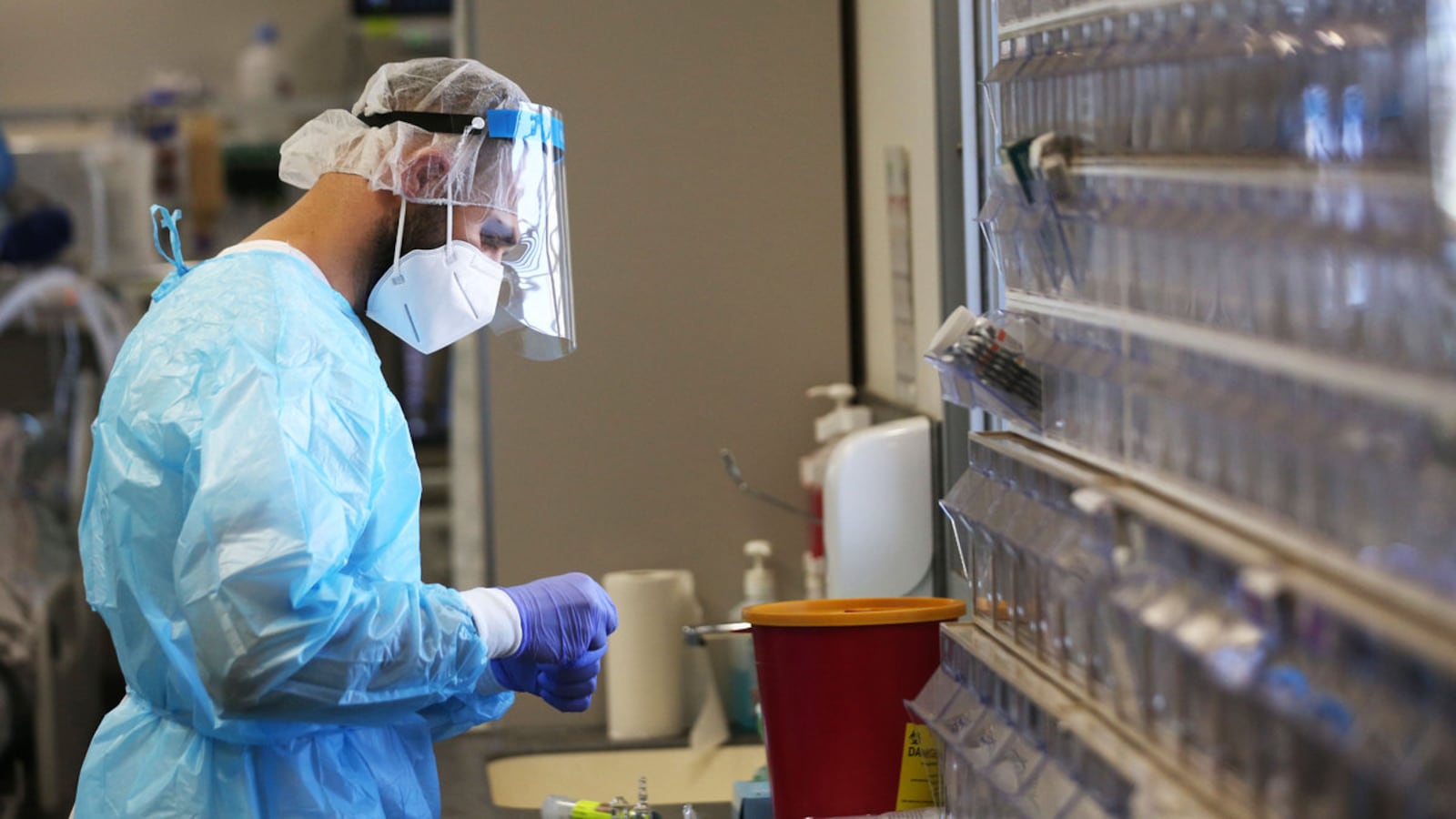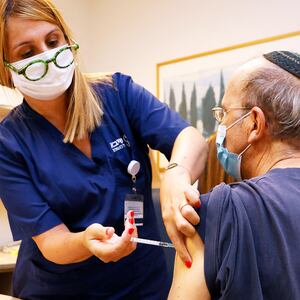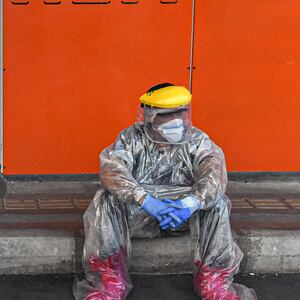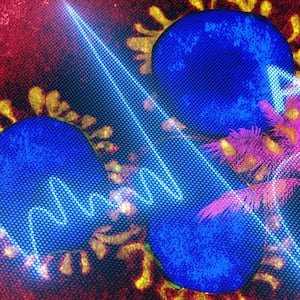JERUSALEM—As the hours clicked down towards Sept. 1, when Israel embarked on a risky experiment of opening the school year while COVID-19 infections spike to unprecedented levels, the country’s COVID czar, Salman Zarka, gloomily acknowledged to a local radio station that “the picture is very disturbing, and regarding morbidity, the situation is really not good. Looking at the rise in morbidity, unfortunately, there is no surprise in the number of deaths.”
As Israel has learned the hard way, even with highly effective vaccines, it is impossible to prevent COVID-19 infections completely. The world’s huge unvaccinated majority and reopened borders have created a global petri dish for viral mutations. Surges in the highly infectious Delta and Delta-plus variants are even walloping countries that, like Israel, successfully ran mass vaccination campaigns.
Israel’s booster shot rollout appears to be flattening the curve, but the fundamental problem, Zarka said, is that “we still do not have a treatment for the virus itself.”
There is nothing more vital for the ongoing fight against COVID-19 than vaccines, but the fact that the virus isn’t going away has put the need for therapeutic drugs to treat it back on the front burner.
“Nothing is 100 percent effective,” Tel Aviv University virologist Oren Kobiler told The Daily Beast. “The vaccines are essential, but they wane earlier for the elderly, for people with preexisting conditions and for the immuno-compromised, who tend to catch the virus. So it is important to have treatments.”
The great majority of COVID-19 patients recover without the need for medical intervention, but around the world, scientists are working on treatments. Steroids have proven effective against one of the principal causes of COVID-19 deaths: cytokine storms, caused when the body’s immune system awakens after the initial assault by a virus, goes into overdrive, and begins attacking healthy lung cells.
But steroids’ inhibition of the body’s entire immune system is perilous for severely sick patients struggling to survive.
Early treatment with monoclonal—or laboratory-produced—antibodies has been shown to be helpful for patients already on steroids, and Israel is beginning some use of Regeneron’s casirivimab and imdevimab cocktails to treat severely ill patients. But at between $1,200 and $1,500 per dose, its cost is prohibitive, and monoclonal antibodies have limited efficacy against new COVID-19 variants.
Now, a new drug developed at Tel Aviv’s Sourasky Medical Center is providing hope of a better, cheaper, treatment. While still in its early stages, and pending a crucial third trial, Dr. Nadir Arber believes that he’s developed a drug that will turn even the most severe cases of SARS-COV-2 infection into manageable medical events—without affecting the body’s natural ability to protect itself.
Arber’s remedy, EXO-CD24, one of the most promising Israeli therapeutics under review, is a “precision medication” trained directly at the cytokine storms that so often prove deadly for the 5 to 7 percent of COVID-19 patients whose condition worsens precipitously.
Arber has been studying the CD24 molecule for 25 years, seeking new therapies for cancer. Why CD24? Because it is “an important negative regulator of the immune system,” he told The Daily Beast, “it exists naturally in the human body—plus, here in Israel we had to think outside the box. American scientists were already investigating all the better known elements.”
As the pandemic went into high gear, he and Dr. Shiran Shapira, who heads his lab, began thinking of re-routing their work towards an antiviral treatment. Within six months, EXO-CD24 was being tested on their first patient.
EXO-CD24’s delivery system is uniquely expedient in two ways: inside the body, it is transported via exosomes, minuscule vesicles, or liquid cell-structures, responsible for the exchange of information among cells. Their specificity, Arber believes, accounts for the absence of significant side effects recorded in clinical trial patients thus far.
Secondly, when fully developed, patients will be able to self-treat with the use of a nasal spray or inhaler.
All 30 patients treated with EXO-CD24 in a Phase I trial that concluded last February recovered. Twenty-nine of them were discharged from hospital within five days of starting treatment. Arber demurred, but by March, then-prime minister Benjamin Netanyahu was touting EXO-CD24 as a “miracle drug.”
On Aug. 5, Sourasky hospital and Greek coronavirus czar Dr. Sotiris Tsiodras, who conducted EXO-CD24’s Phase II trials in three Athens hospitals, announced that 93 percent of 90 patients suffering from moderate to acute COVID-19 symptoms were discharged within five days of beginning treatment with EXO-CD24. None of them required intubation.
The crucial Phase III placebo trial was launched this week in Israel. India, Georgia and Brazil, which is counting almost exclusively on EXO-CD24 to halt the country’s uncontrolled epidemic, will also take part.
“We may be able to request FDA approval for emergency use by the end of the year,” Arber told The Daily Beast.
Arber’s initial aim is to prevent the deterioration of acutely ill patients, and avoid the need for their ventilation, but ultimately, he aspires to see EXO-CD24 used at home, sparing patients from hospitalization altogether.
After the success of the Greek trials, Arber is allowing himself to hope his CD24 molecule will prove to be “a game-changer.”
The last time Israel opened schools, in the spring of 2020, before the introduction of vaccines, was a chaotic disaster that triggered a second nation-wide lockdown. Now, the government has issued a multi-page plan requiring parents to check their children for SARS-COV-2 antibodies and teachers and students over the age of 12 to be vaccinated or tested every 48 hours.
Meanwhile, scientists are continuing to dig for therapeutic treatments for COVID-19, which has killed more than 4.5 million people worldwide. Kobiler, the Tel Aviv University virologist, urged caution about EXO-CD24 at this stage, and noted that most cases of SARS-COV-2 infection resolve themselves without hospitalization. Still, Kobler allowed, he’s “very hopeful” about the treatment.









